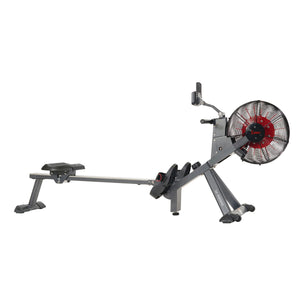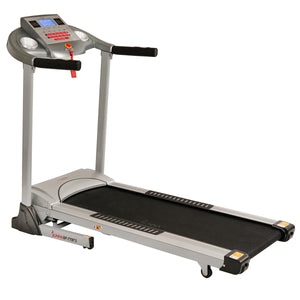Stress and anxiety are common experiences for most people. In fact, according to the American Heart Association, nearly one third of Americans live with extreme stress (1). Coping with stress is not easy, and in many cases, stress can affect our physical and psychological health. Relieve stress with these 7 simple ways to reduce stress and anxiety.
1. Be More Mindful
Mindfulness is a way to describe a variety of practices and techniques that bring your attention to the present moment. Practicing mindfulness is a way to not only decrease your anxiety, but to help you be more productive and find more enjoyment in the here and now.
When anxious thoughts creep in, find a way to be more mindful - whether it’s through meditation, journaling, or just pausing for a deep breath to recenter your thoughts on the present moment.
2. Exercise
Exercise is one of the best things you can do to combat stress. It might seem counterintuitive to place your body under another stressor (exercise) when you’re feeling overwhelmed, but those who exercise regularly are less likely to experience anxiety in comparison to those who are sedentary (2).
Participating in a regular exercise routine can reduce cortisol (stress hormones) and increase endorphins (feel good hormones). It can also help boost your confidence, improving your self-image and mental health.
Try adding an exercise you enjoy into your routine, like walking, hiking, or dancing. If you have fitness equipment at home, even better! Consider trying this Beginner Cycle Bike Workout to kickstart your new fitness routine.
3. Practice Breathing Techniques
When we’re stressed, our breathing patterns begin to change - taking short, shallow breaths instead of deep belly breaths. Deep breathing can help slow our heart rate and promote relaxation. Next time you’re stressed, pause to practice deep breathing.
Sit up straight and place one hand on your belly. Take a big deep breath through your nostrils, filling your lungs with oxygen, and feel your belly rise as you inhale. Pause for a moment, and exhale through your mouth. Repeat. Pause where you are to practice 10 deep breaths for a quick stress reliever.
If you have a little more time, try out this 10 Minute Study Break Workout that combines light exercise and breathing techniques to help you destress!
4. Write it Down Do
you ever find yourself with so many to-do’s you just can’t turn your brain off? As soon as your brain starts ticking through that mental to-do list, grab a pen and paper, and start writing it down.
Once you have it down, you have the assurance that those brilliant ideas, to-do’s, and plans aren’t going anywhere. Writing it down gives your brain permission to let it go until you’re ready to come back to it - which means better sleep at night, more attention, and productivity for the current moment.
5. Learn How to Say No
Not all stressors are in our control, but some we have power over. If you often find yourself biting off more than you can chew, leaving you stressed and overwhelmed with responsibilities, learn to say no more often.
Being selective about the things you choose to take on isn’t selfish; it empowers you to give more attention to the things that actually matter. Reduce stress by removing the things from your load that make you unnecessarily busy.
6. Spend Time with Loved Ones
Spending time with family, friends, and even pets helps to release oxytocin, a chemical in the brain that promotes a positive mood (3, 4). Another study found that people with the fewest social connections are more likely to suffer from anxiety (5).
Having a strong social circle can provide love and support when needed; it can give us a greater purpose and a sense of belonging, and improve our self-worth. Clear some time to spend with those you love to share a meal, play board games, or do something active together!
7. Stretch it Out
When you’re feeling anxious, it can feel like the weight of the world is sitting on your shoulders. You’d be amazed at what some light stretching can do for not just your body but your mind as well. Pausing to take care of your body can help to increase both your body and mental awareness.
When you’re feeling anxious, it can feel like the weight of the world is sitting on your shoulders. You’d be amazed at what some light stretching can do for not just your body but your mind as well. Pausing to take care of your body can help to increase both your body and mental awareness. Want to add some stretching to your routine? Use this quick 5 Minute Stretching Routine to relieve tightness and tension, and ease anxiety and stress.
We want to help you take control of your life and decrease stress and anxiety in your everyday routine; for more helpful tips and ideas to relieve stress, check out our podcast on How to Reduce Stress Quickly. For more fun workouts to help you relieve stress in your regular routine, be sure to subscribe to the Sunny Health & Fitness YouTube Channel, so you don’t miss a thing!
(1) “Stress a Major Health Problem in The U.S., Warns APA” American Psychological Association, 2007, https://www.apa.org/news/press/releases/2007/10/stress. Accessed 15 April, 2021.
(2) “Regular Exercise, Anxiety, Depression and Personality: A Population-Based Study” Science Direct, 2006, https://www.sciencedirect.com/science/article/abs/pii/S0091743505002331. Accessed 15 April, 2021.
(3) “Psychosocial and Psychophysiological Effects of Human-Animal Interactions: The Possible Role of Oxytocin” US National Library of Medicine National Institute of Health, 2012, https://www.ncbi.nlm.nih.gov/pmc/articles/PMC3408111/. Accessed 15 April, 2021.
(4) “Biobehavioral Responses to Stress in Females: Tend-and-Befriend, Not Fight-or-Flight” US National Library of Medicine National Center for Biotechnology Information, 2000, https://pubmed.ncbi.nlm.nih.gov/10941275/. Accessed 15 April, 2021.
(5) “The Association Between Perceived Social Support and Health Among Patients at A Free Urban Clinic” US National Library of Medicine National Center for Biotechnology Information, 2009, https://pubmed.ncbi.nlm.nih.gov/19331256/. Accessed 15 April, 2021.



























Add Your Name & Email
Please enter your name and email to continue.We won’t display your email publicly.